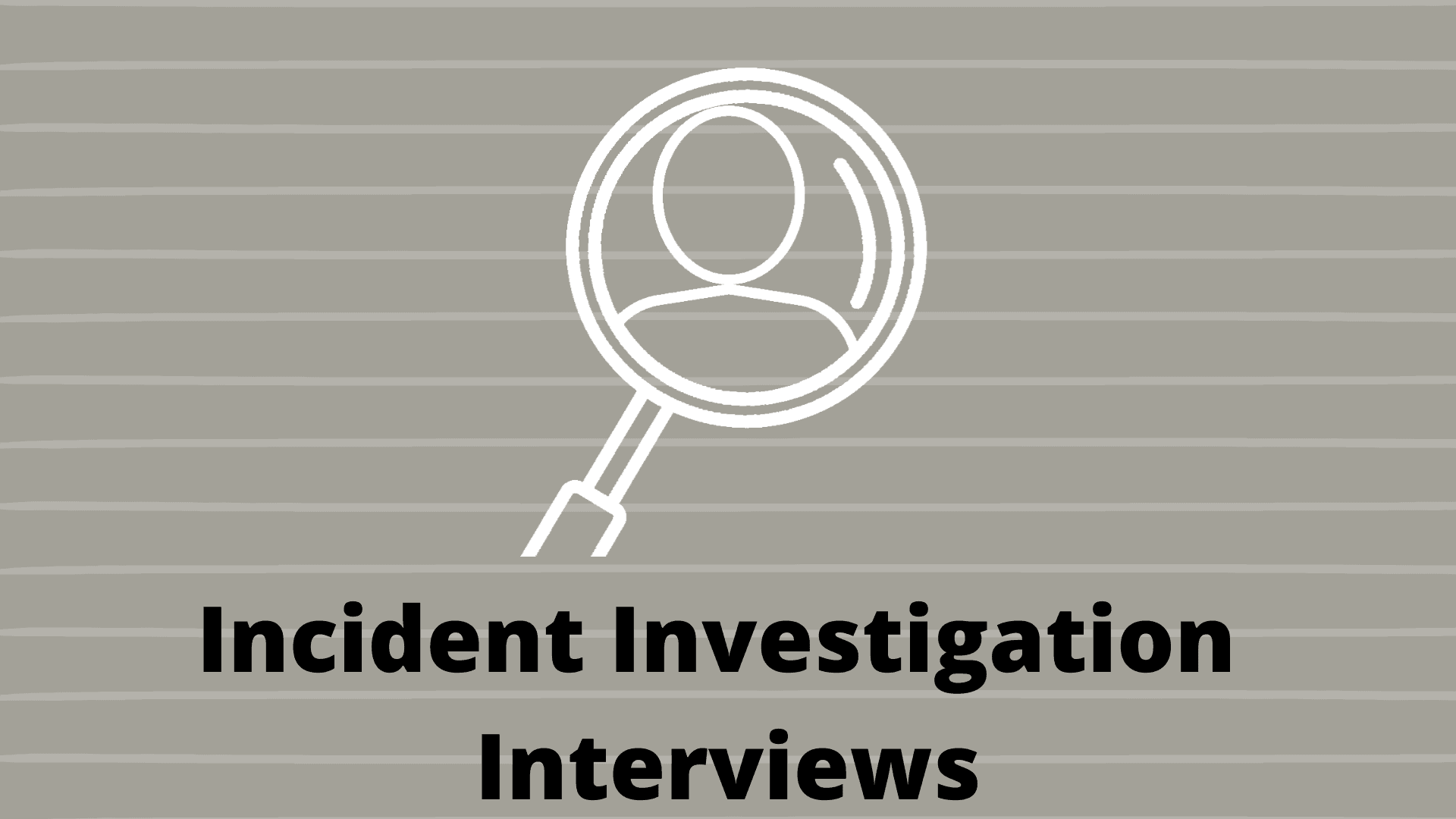Evidence Collection Tip: Three Types of Witnesses

Evidence collection is important to an incident investigation. This ensures the investigation is based on facts and not assumptions. Interviews help us collect some of that important information. It would be great if we could do investigation interviews and get all the information we need. What usually happens is we have to sift through the information we gather from investigative interviews and decide what is reliable and what is unreliable. Understanding the witness is helpful. In today’s evidence collection tip column, I want to discuss three types of witnesses you may encounter when you conduct an investigative interview.
Learn more by signing up for our upcoming TapRooT® Evidence Collection and Interviewing Techniques Course, May 2-3, 2022, Knoxville, Tennessee (this is a hybrid 2-day course – attend in-person or virtually).
3 Types of Witnesses in an Investigative Interview
1. The Cooperative Witness
The cooperative witness tries to be helpful. He/she understands that the investigation hinges upon getting the facts straight, and this witness wants to provide any and all information he/she can to put the puzzle together. While a cooperative witness is great to work with, keep in mind that they are relying upon their own memories. So, just because you are getting a lot of information from them does not mean it is all reliable. Be diligent and check the information against other sources of evidence. They might also want to help a little too much by filling in their memory with things that didn’t happen.
2. The Reluctant Witness
A reluctant witness is still a great witness. There may be many reasons for his/her reluctance so they need to be addressed upfront. That’s why it’s important to use an interview process like the TapRooT® 12-Step Process. Overcoming objections of a reluctant witness are built into the 12-step process. For example, rapport building goes a long way in an interview. Studies have proven that rapport can be built very quickly, and people are willing to give more information to someone with whom they feel some level of rapport. Rapport building should be part of your interview process to easily turn a reluctant witness into a cooperative one.
3. The Silent Witness
The silent witness will not tell you anything. It doesn’t matter how you set up the interview, they have determined before they got there that they are not going to (or are not able to) provide any useful information. There are many reasons for this. If they work in a blame culture, they may be afraid of losing their jobs. They may be traumatized by the events and unable to revert back to that memory. Maybe their bosses (if a contractor for your company) or the Union has advised them to keep quiet. So what do you do? When you have a silent witness, you must collect information from other sources and not waste energy trying to get information from those who will not provide it.
Understanding the three types of witnesses gives you a better idea of who to interview, and what to expect. Sometimes, we put too much emphasis on what a cooperative witness tells us without verifying the facts. Many people give up on a reluctant witness too soon – remember, a robust interview process will include steps to gently overcome their resistance. Others spend too much time trying to get information from a silent witness.
Learn the TapRooT® 12-Step Interview Process PLUS other Effective Techniques for Evidence Collection
This is the ONLY 2-day evidence collection and interviewing techniques course we are offering in 2022, and it will be held just prior to the 2022 Global TapRooT® Summit. Consider staying in beautiful East Tennessee the whole week and join us for the conference.
In-person or virtual – this is a hybrid course.
TapRooT® Evidence Collection & Interviewing Techniques Course
May 2-3, 2022 (The Summit is May 4-6)
Knoxville, Tennessee



